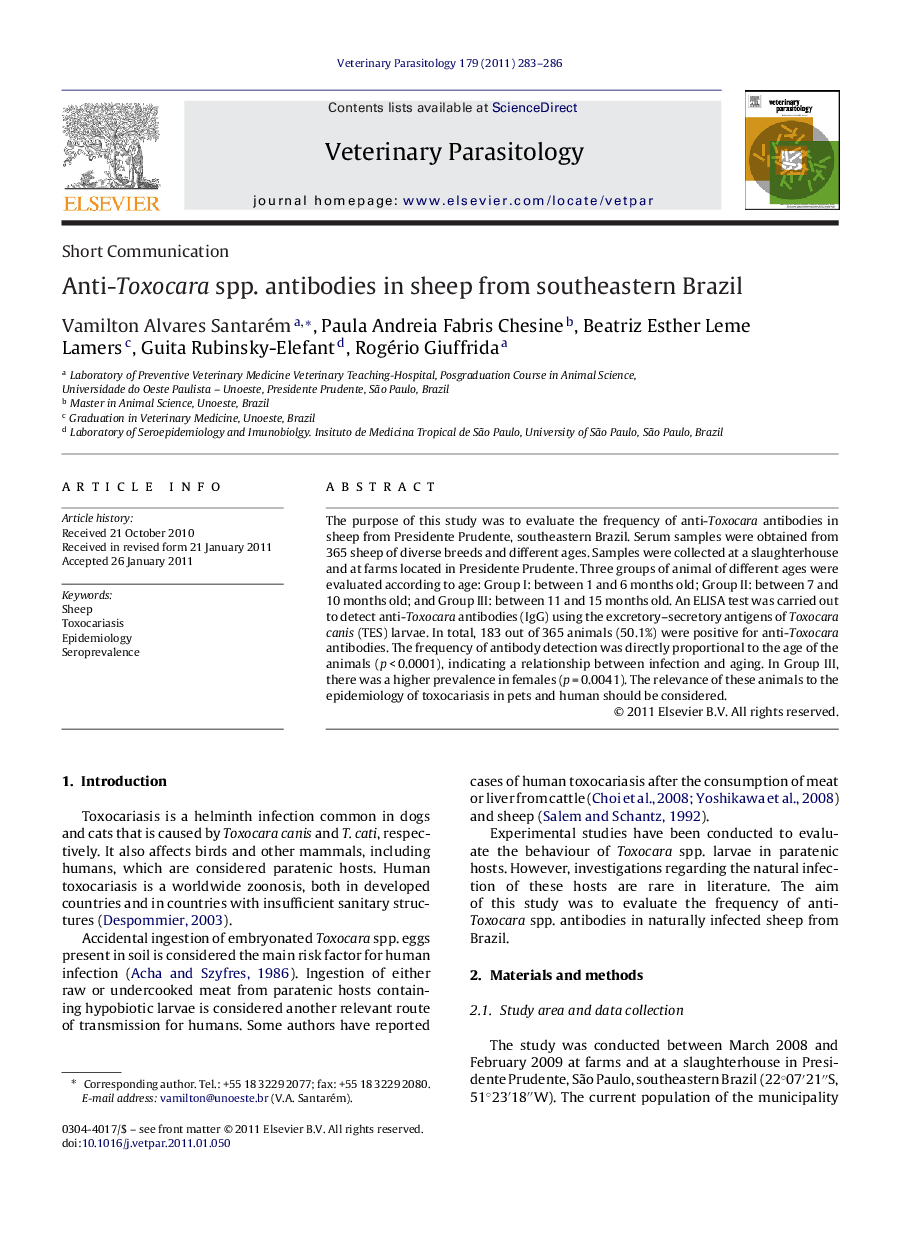| Article ID | Journal | Published Year | Pages | File Type |
|---|---|---|---|---|
| 2470289 | Veterinary Parasitology | 2011 | 4 Pages |
The purpose of this study was to evaluate the frequency of anti-Toxocara antibodies in sheep from Presidente Prudente, southeastern Brazil. Serum samples were obtained from 365 sheep of diverse breeds and different ages. Samples were collected at a slaughterhouse and at farms located in Presidente Prudente. Three groups of animal of different ages were evaluated according to age: Group I: between 1 and 6 months old; Group II: between 7 and 10 months old; and Group III: between 11 and 15 months old. An ELISA test was carried out to detect anti-Toxocara antibodies (IgG) using the excretory–secretory antigens of Toxocara canis (TES) larvae. In total, 183 out of 365 animals (50.1%) were positive for anti-Toxocara antibodies. The frequency of antibody detection was directly proportional to the age of the animals (p < 0.0001), indicating a relationship between infection and aging. In Group III, there was a higher prevalence in females (p = 0.0041). The relevance of these animals to the epidemiology of toxocariasis in pets and human should be considered.
